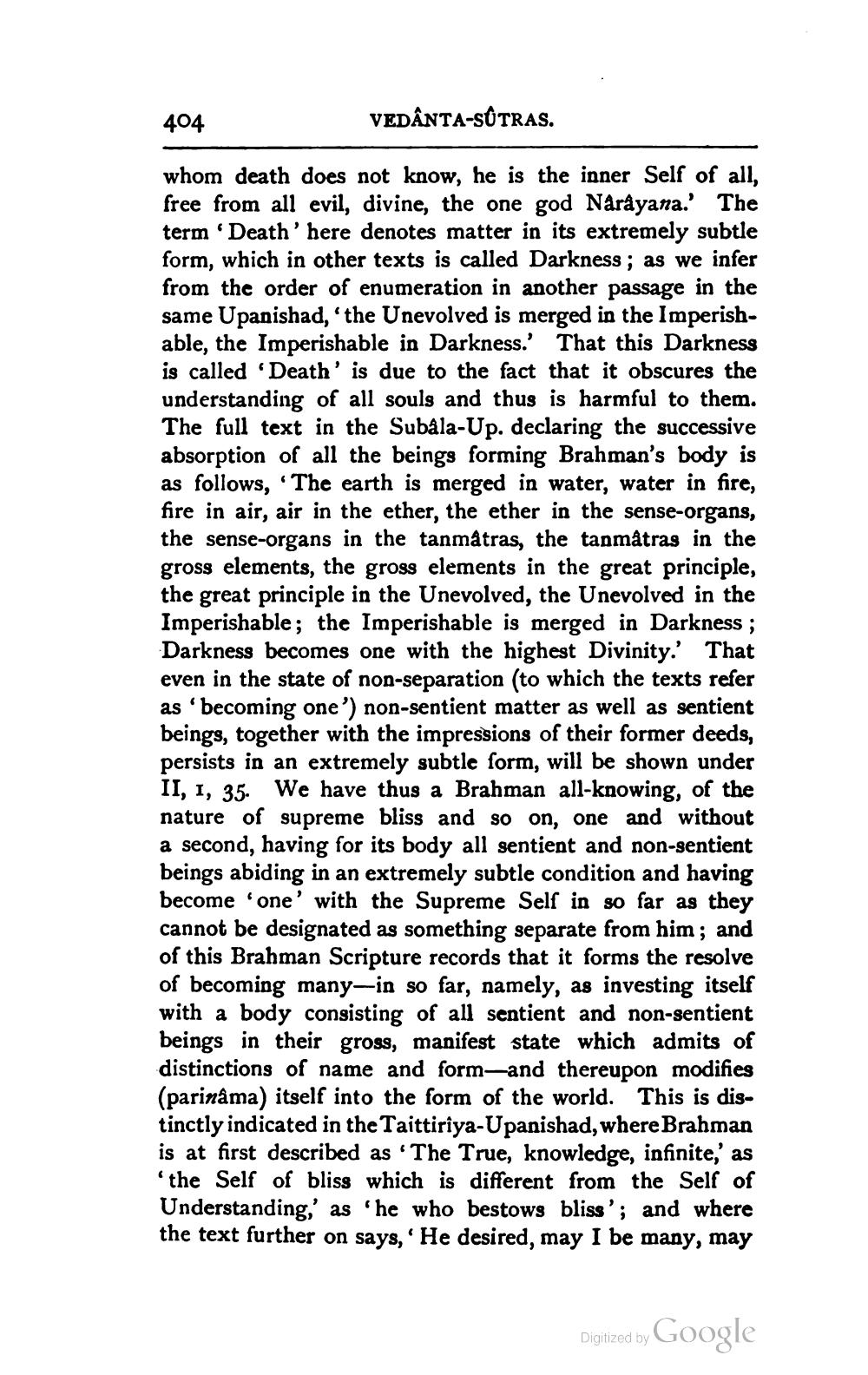________________
404
VEDÂNTA-SÛTRAS.
whom death does not know, he is the inner Self of all, free from all evil, divine, the one god Narayana. The term 'Death' here denotes matter in its extremely subtle form, which in other texts is called Darkness; as we infer from the order of enumeration in another passage in the same Upanishad, the Unevolved is merged in the Imperishable, the Imperishable in Darkness.' That this Darkness is called 'Death' is due to the fact that it obscures the understanding of all souls and thus is harmful to them. The full text in the Subala-Up. declaring the successive absorption of all the beings forming Brahman's body is as follows, The earth is merged in water, water in fire, fire in air, air in the ether, the ether in the sense-organs, the sense-organs in the tanmatras, the tanmatras in the gross elements, the gross elements in the great principle, the great principle in the Unevolved, the Unevolved in the Imperishable; the Imperishable is merged in Darkness ; Darkness becomes one with the highest Divinity. That even in the state of non-separation (to which the texts refer as 'becoming one') non-sentient matter as well as sentient beings, together with the impressions of their former deeds, persists in an extremely subtle form, will be shown under II, 1, 35. We have thus a Brahman all-knowing, of the nature of supreme bliss and so on, one and without a second, having for its body all sentient and non-sentient beings abiding in an extremely subtle condition and having become 'one' with the Supreme Self in so far as they cannot be designated as something separate from him; and of this Brahman Scripture records that it forms the resolve of becoming many-in so far, namely, as investing itself with a body consisting of all sentient and non-sentient beings in their gross, manifest state which admits of distinctions of name and form—and thereupon modifies (parinâma) itself into the form of the world. This is distinctly indicated in the Taittiriya-Upanishad, where Brahman is at first described as 'The True, knowledge, infinite,' as the Self of bliss which is different from the Self of Understanding,' as 'he who bestows bliss'; and where the text further on says, ' He desired, may I be many, may
Digitized by
Digitized by Google




